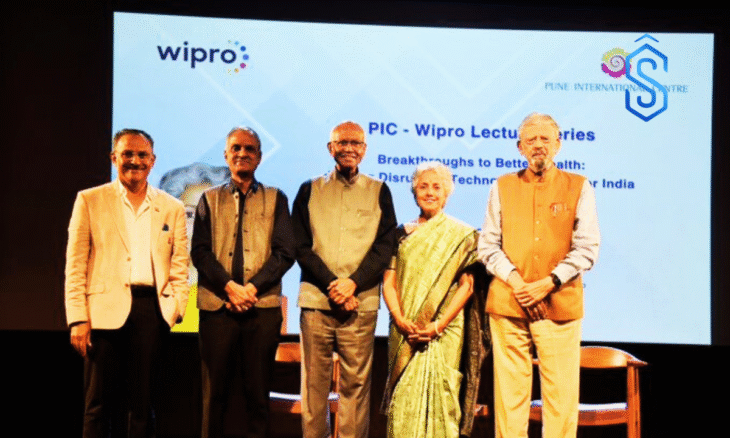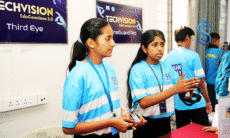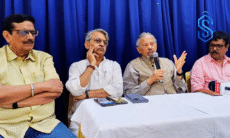Pune: At the inaugural PIC Wipro Lecture Series on Science, Technology and Society, Dr Soumya Swaminathan, Principal Advisor to the National Tuberculosis Elimination Programme (NTEP) and former Chief Scientist at the World Health Organization (WHO), called for urgent strengthening of India’s health infrastructure and a shift from reactive to preventive healthcare systems.
Delivering her lecture on “From Basics to Better Health: Making Disruptive Technologies Work for India,” Dr. Swaminathan said disruptive technologies can revolutionize healthcare only when paired with equity, robust systems, trained professionals, and evidence-based policymaking.
PIC Wipro Lecture Series: Air Pollution, Climate Change, and Antimicrobial Resistance Among Key Global Threats
During the PIC Wipro Lecture Series, Dr. Swaminathan identified air pollution, climate change, antimicrobial resistance, and misinformation as critical global health threats.
She highlighted India’s dual health challenges – non-communicable diseases in southern states and maternal and child health issues in northern regions – and emphasized the need for decentralised, state-specific healthcare strategies.
Also Read: PIC 14th Foundation Day: Thought Leaders Stress Youth, Women Engagement and Policy Innovation
Leveraging Disruptive Technologies in Healthcare
Dr. Swaminathan cited innovations such as AI-driven respiratory screening platforms like Swaasa, mRNA vaccines, and wearable health monitors as examples of how technology can enhance access and outcomes. However, she urged that such advances must be grounded in ethical, interdisciplinary, and community-based research.
Digital Health Transformation and Primary Healthcare
Praising the Ayushman Bharat Digital Mission (ABDM) for creating nearly 80 crore ABHA IDs, she described it as a significant move toward building a unified digital health ecosystem. Yet, she cautioned that innovation will remain inequitable without a strong Primary Health Care (PHC) foundation, calling attention to care gaps, weak referral pathways, and limited monitoring at the grassroots level.
PIC Wipro Lecture Series: Strengthening Research and Ethical Frameworks
Dr. Swaminathan stressed the need for greater investment in health research capacity, data systems, and ethical frameworks. She pointed to India’s strengths in its research talent, digital infrastructure – such as Aadhaar, UPI, and CoWIN – and its expanding innovation ecosystem supported by public–private partnerships and philanthropy.
The Pune Knowledge Cluster, she said, exemplifies locally driven innovation with nationwide impact.
Also Read: PIC to Host 13th National Conference on Social Innovation in November 2025
Wipro and PIC Collaboration for Science and Society
P S Narayan, Global Head of Sustainability and Social Initiatives at Wipro Limited, said the company remains committed to supporting public institutions that encourage democratic dialogue and uphold constitutional values. “Through the PIC Wipro Lecture Series, we aim to bridge science, technology, and humanity,” he added.
Dr Raghunath Mashelkar, President of Pune International Centre, outlined PIC’s five guiding principles – independence, integrity, innovation, integration, and influence – emphasising the importance of collaborations that link science, governance, and citizen-centric policy.
Maj Gen Nitin Gadkari (Retd), Director of PIC, introduced Dr. Swaminathan and moderated the interactive session, highlighting the collective responsibility to ensure equitable access to innovation.










